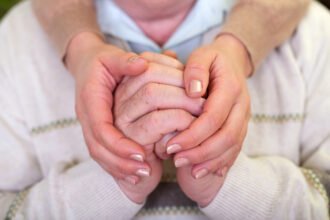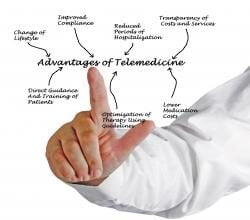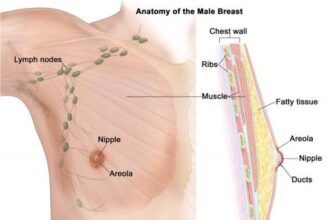Americans are aging – fast. And that means more chronic illnesses like arthritis, heart failure and cancer. It also means more falls, more osteoporotic fractures, poorer hearing and vision and myriad other problems we equate with aging. It also means some older folks become “frail,” irrespective of chronologic age.
Americans are aging – fast. And that means more chronic illnesses like arthritis, heart failure and cancer. It also means more falls, more osteoporotic fractures, poorer hearing and vision and myriad other problems we equate with aging. It also means some older folks become “frail,” irrespective of chronologic age.
You know a person is frail when you see him or her – instinctively you will think a person is “frail” if they are “skinny,” weak, tired, inactive and slow. But frailty can actually be measured. Among the systems is one developed by the Cardiovascular Health Study, a longitudinal program that evaluated cardiovascular risk factors with annual examinations from 1989 to 1999 for individuals over age 65. This was followed through to the present with annual telephone follow-ups. Their “frailty indicator variables” include unintentional weight loss of more than ten pounds (as some measure of loss of muscle mass), grip strength,(as a measure of weakness) , fatigue score on a standardized test (as a measure of tired), physical activity (measure of inactivity), and walking speed (“slowness.”)
Using this approach, and if we define “frail” as having three or more of these five characteristics, about 7% of adults over age 65 living in the community will be regarded as frail. Importantly, frailty is not the result of co-morbidities but co-morbidity is a risk factor for frailty and disability is a frequent outcome of frailty.
With this definition of 3 or more characteristics, frail individuals will be found to have more falls, more hospitalizations, more fractures, increased sleep disordered breathing and more difficulty with the activities of daily living. They also, on average, demonstrate certain biological differences such as elevated C-reactive protein.
One person – otherwise healthy – might become frail in his 70’s whereas someone else might not until his 90’s or even after 100. That would suggest a possible genetic component and some preliminary studies as consistent with this theory.
We know that our bodies begin to “decline” with aging beginning in middle age. Bone mineral density for example declines about 1% per year. So too does cardiac function, muscle mass, lung capacity, etc. These processes are “normal” but can be slowed. Regular aerobic and weight bearing exercise will help maintain all of these functions. The decline will continue but at a slower rate.
What can we each do now? After checking in with your health care provider, a reasonable regimen might include:
Daily aerobic exercise for about 30 minutes
Resistance exercises (weights, Nautilus, etc)
Balance training
A personal trainer or physical therapist might be useful to give guidance and check out if the exercises are being done correctly and with enough intensity.
Then it might be good to add in a
Nutrition consultation to be sure your diet is appropriate for your age and lifestyle. For example, do you get enough protein in your diet?
And you might want to include some mental exercises to complement your physical ones. Studying a foreign language, playing chess or bridge, or Sudoku challenges your brain – but not TV watching or mindless books (even if they are interesting.)
This approach will slow the normal aging process and it may even help prevent the onset of frailty and is sequela. And for certain you will feel better, have fewer falls and other problems common with older age.







